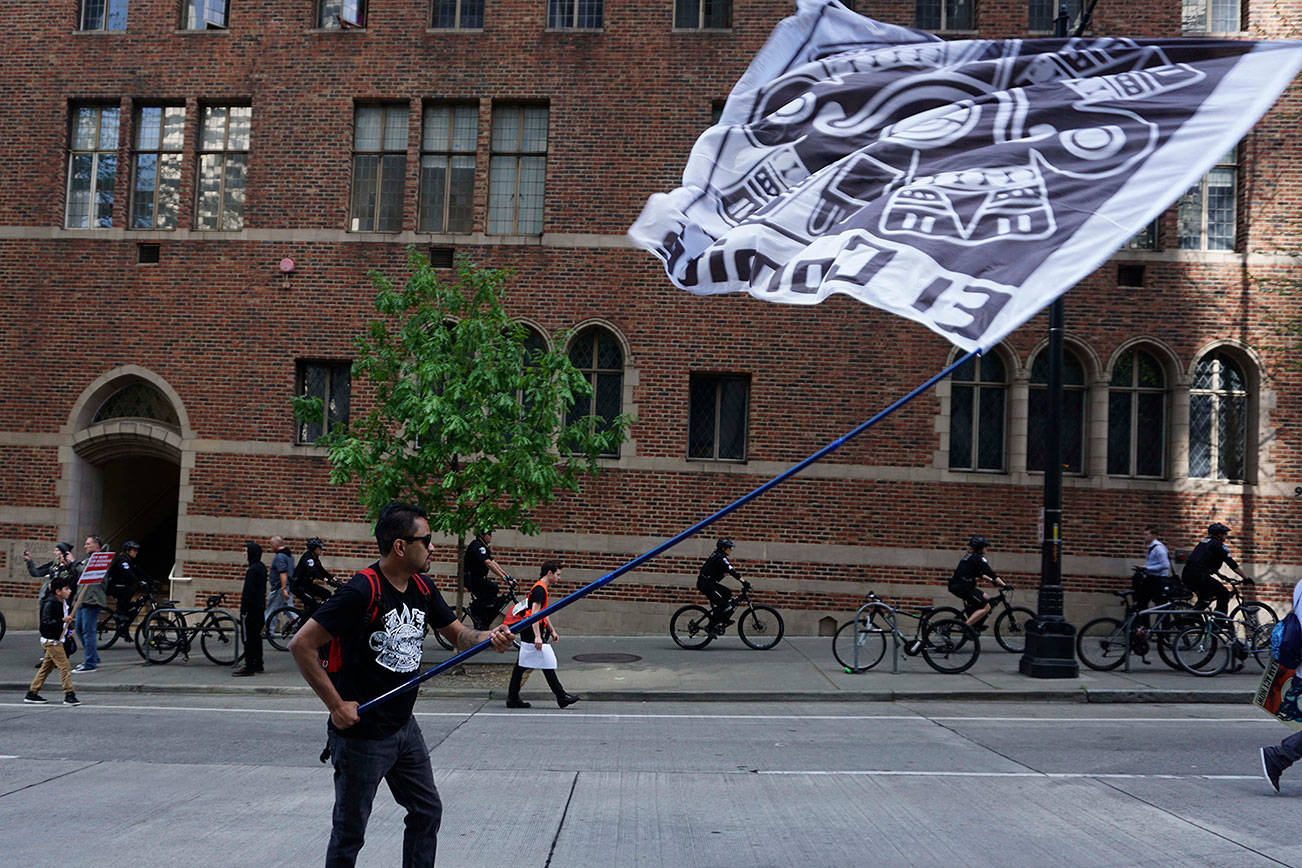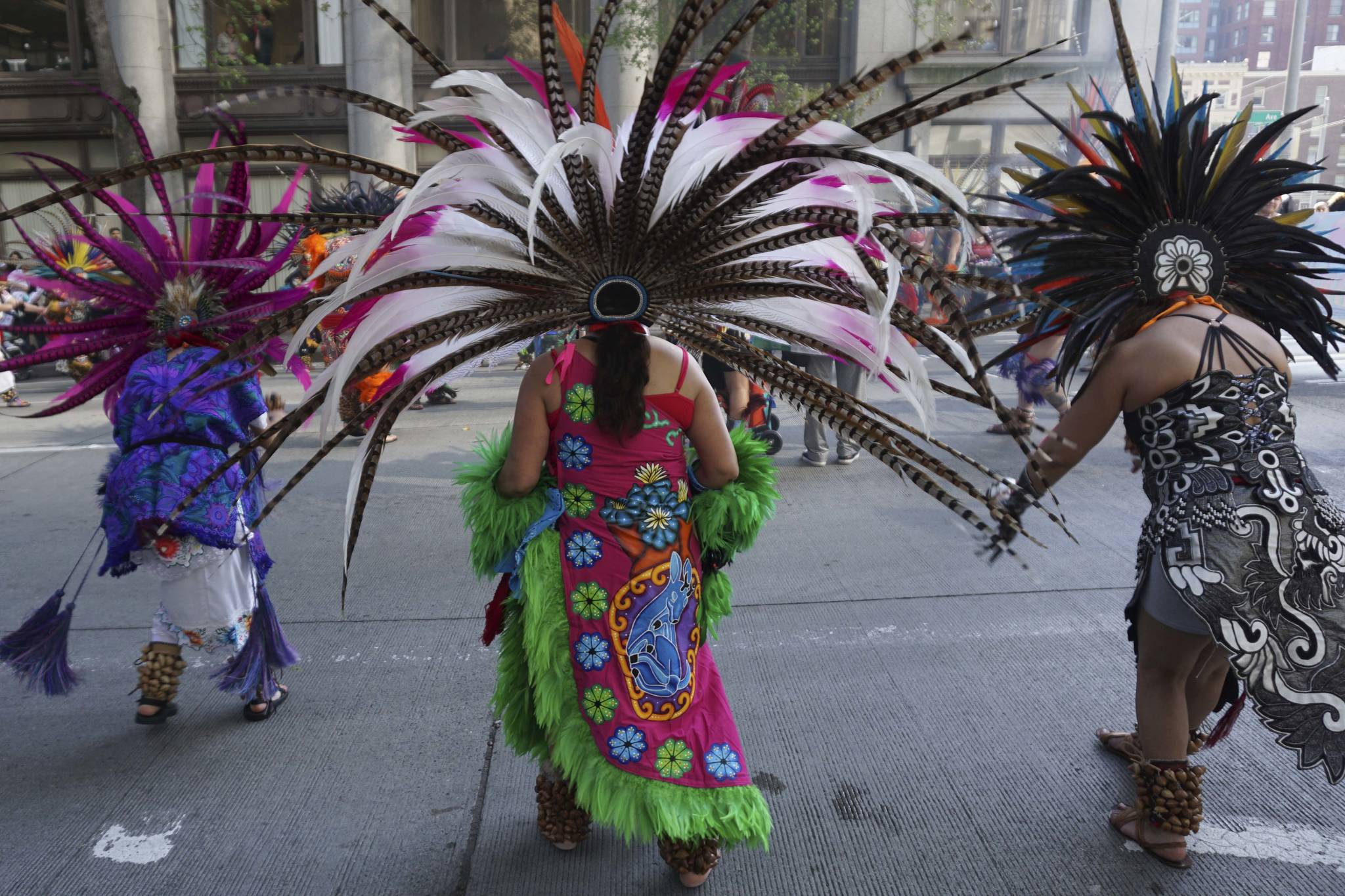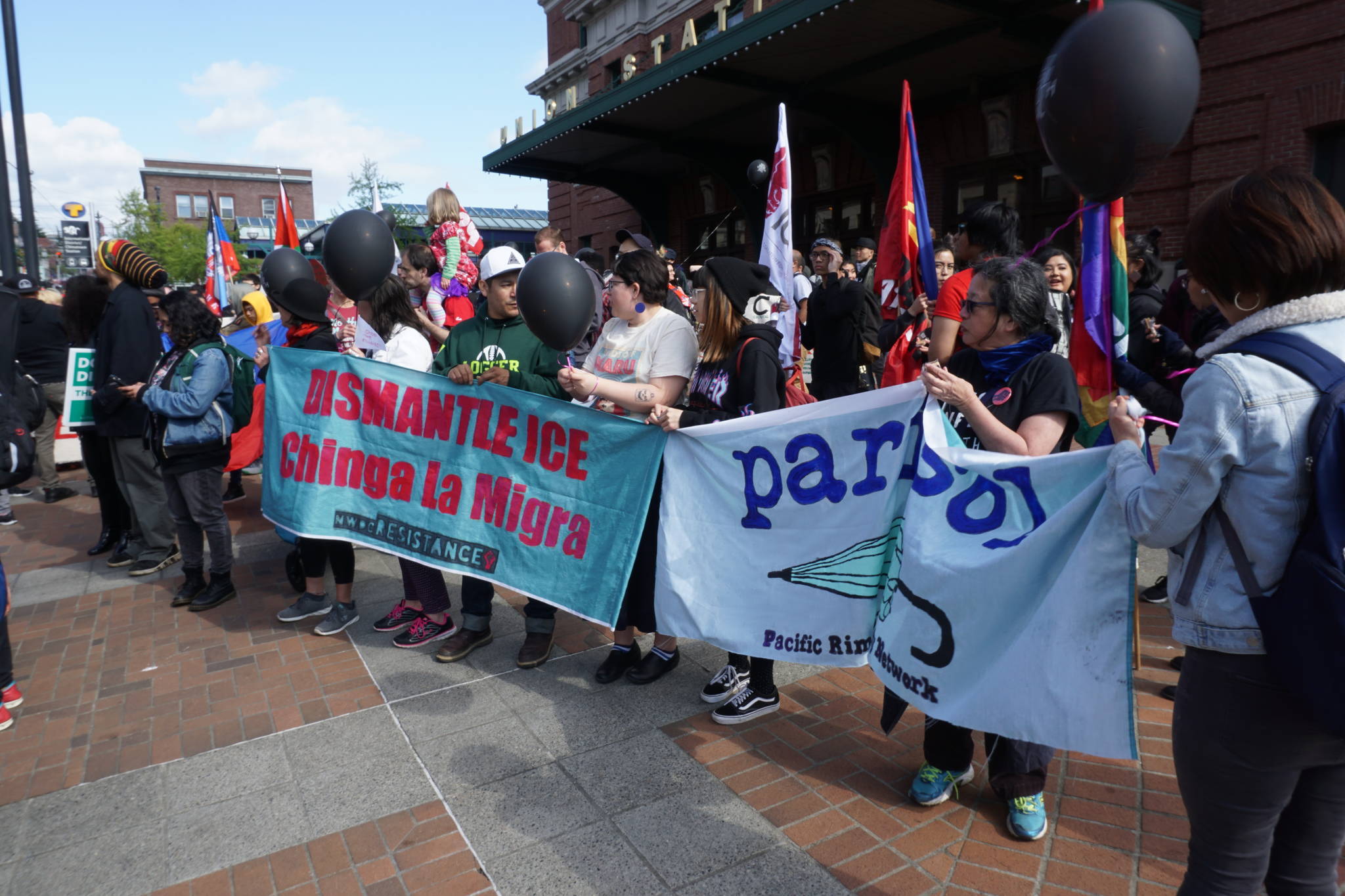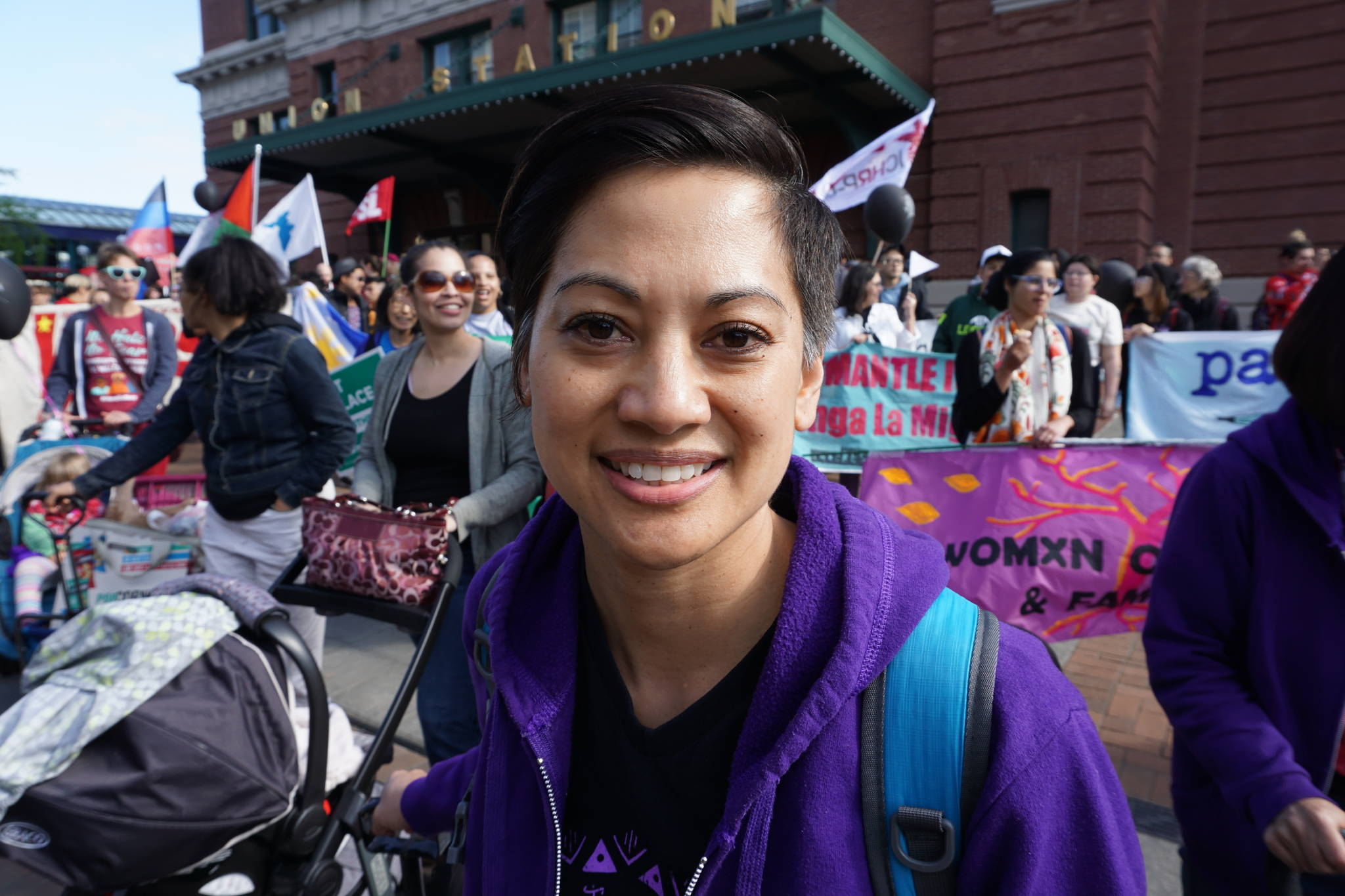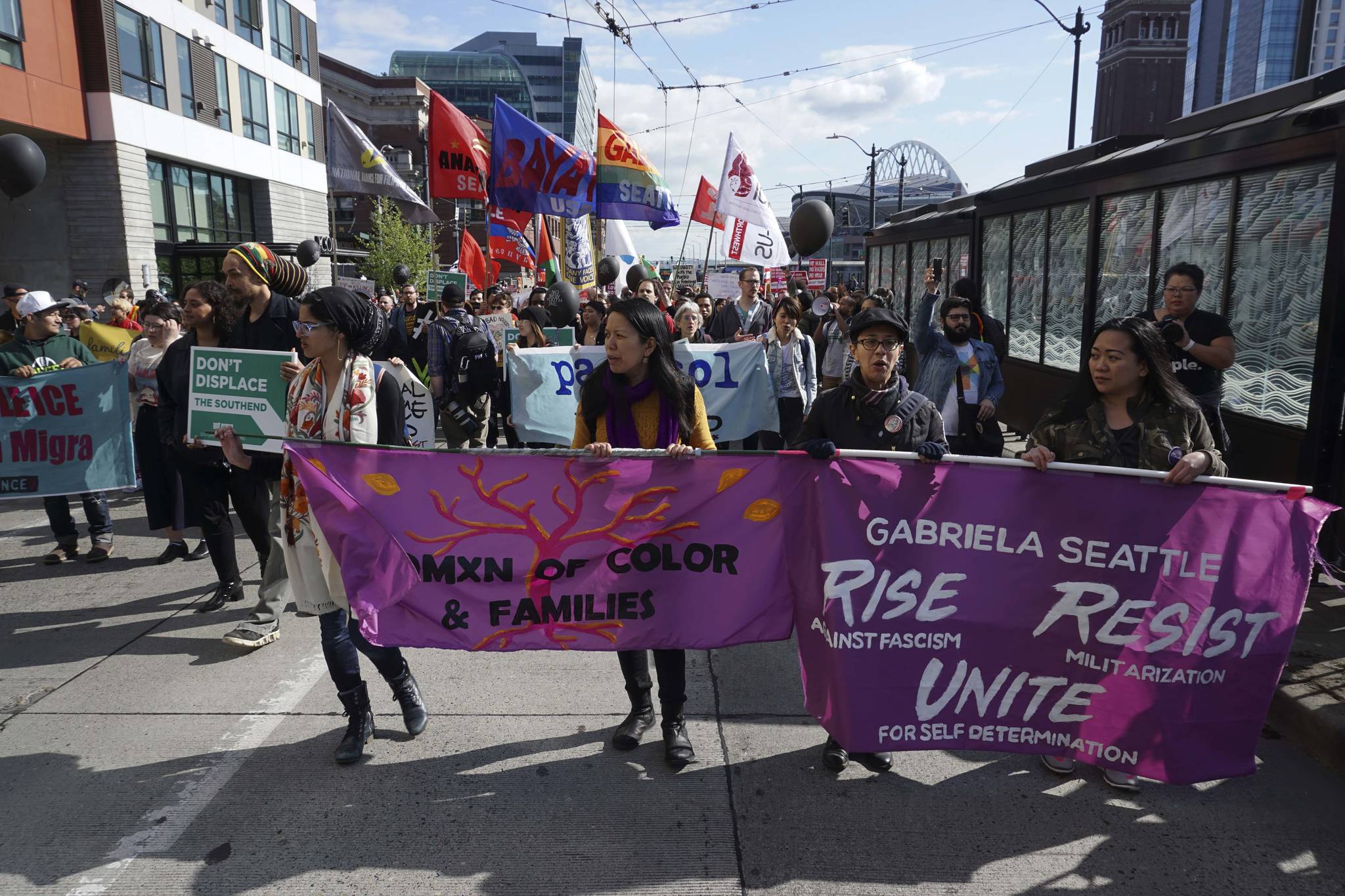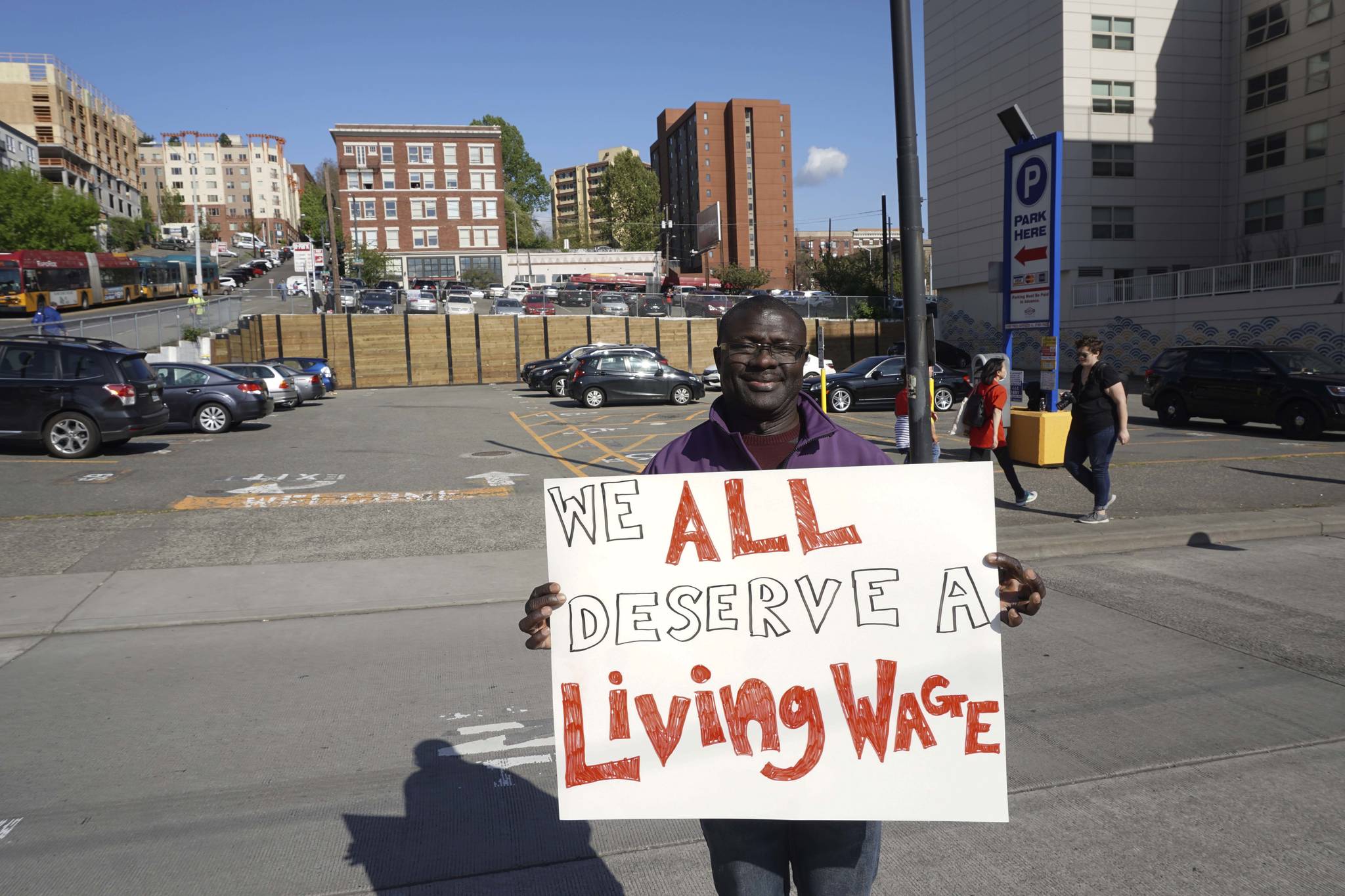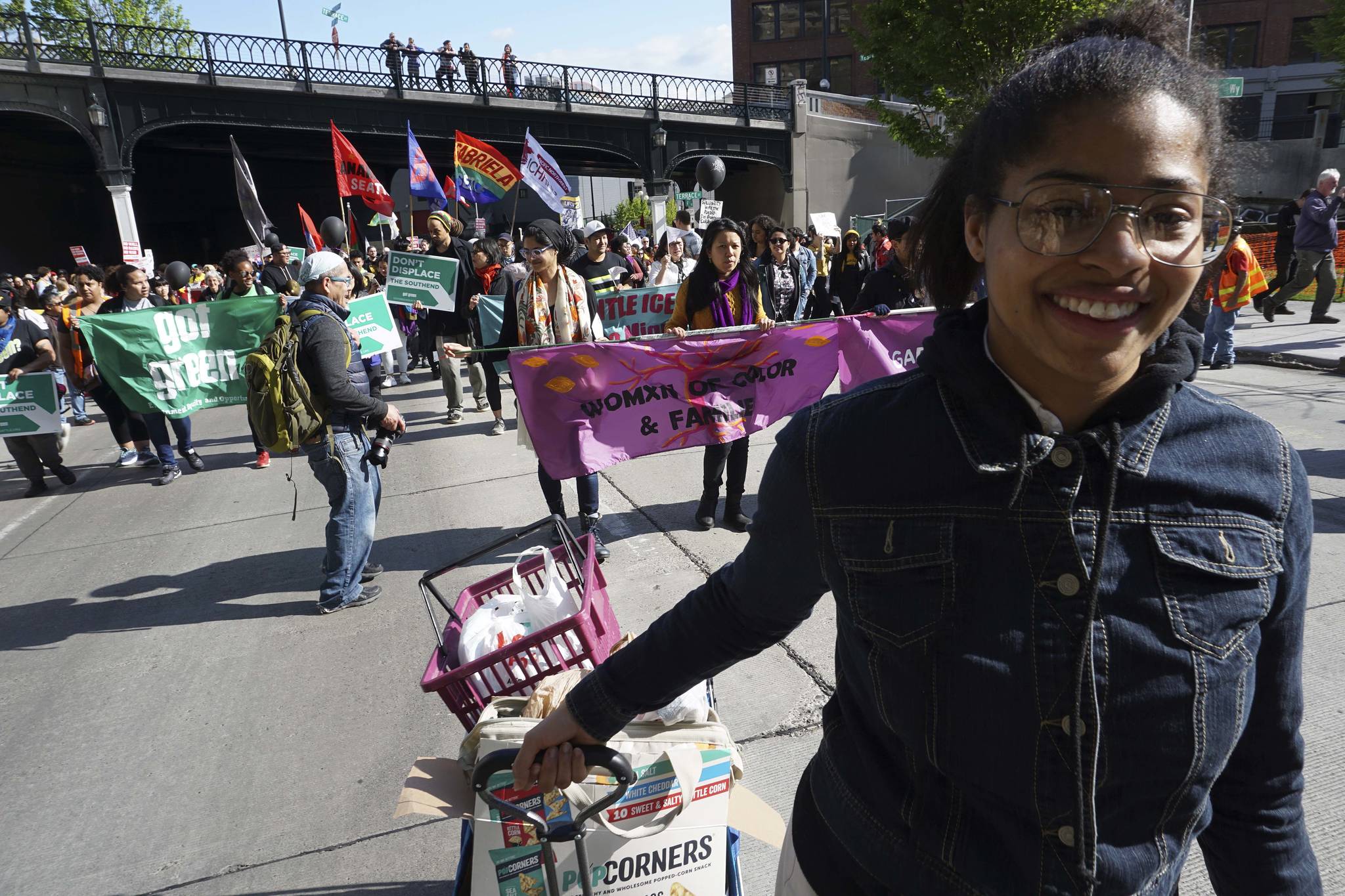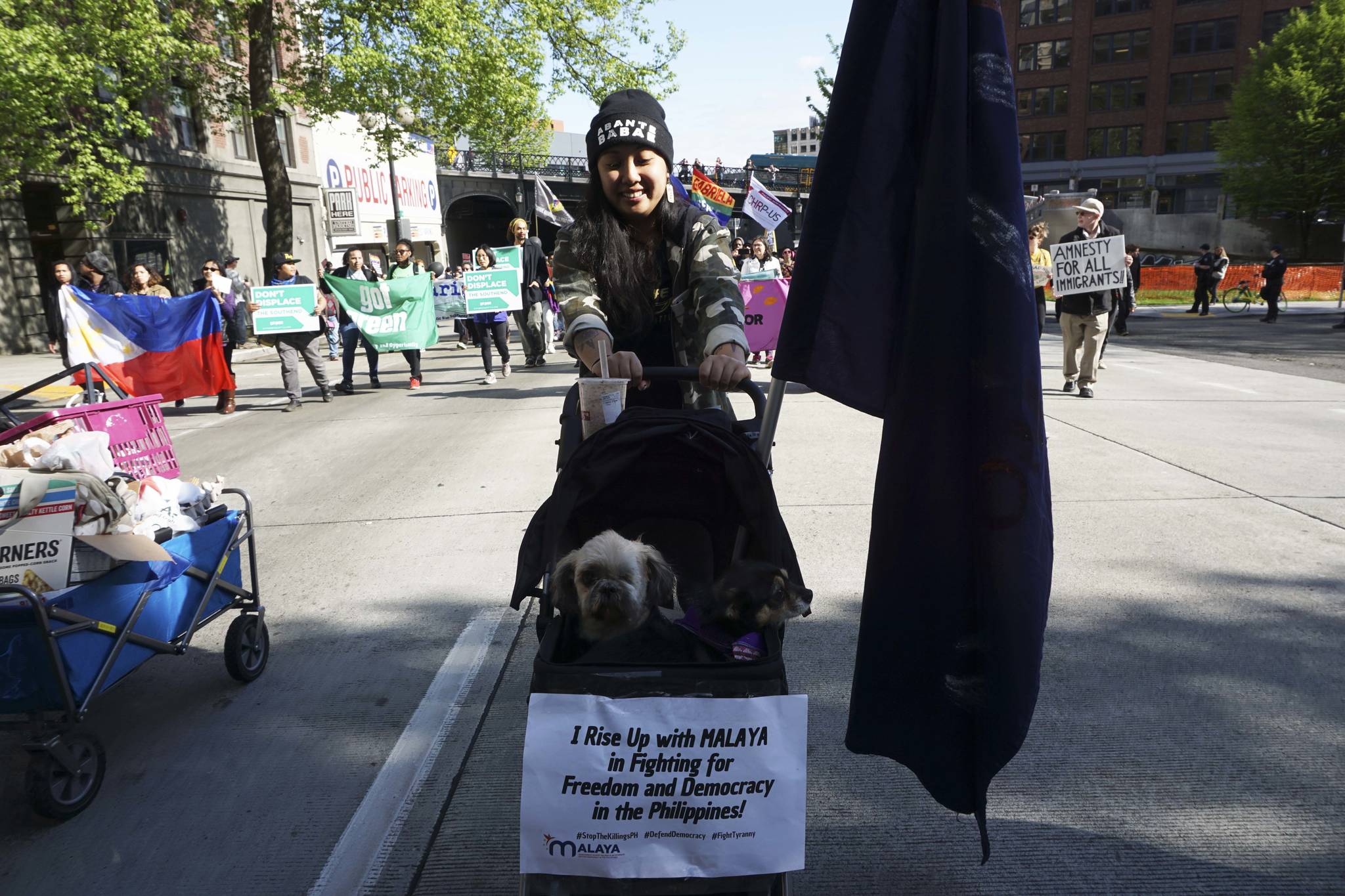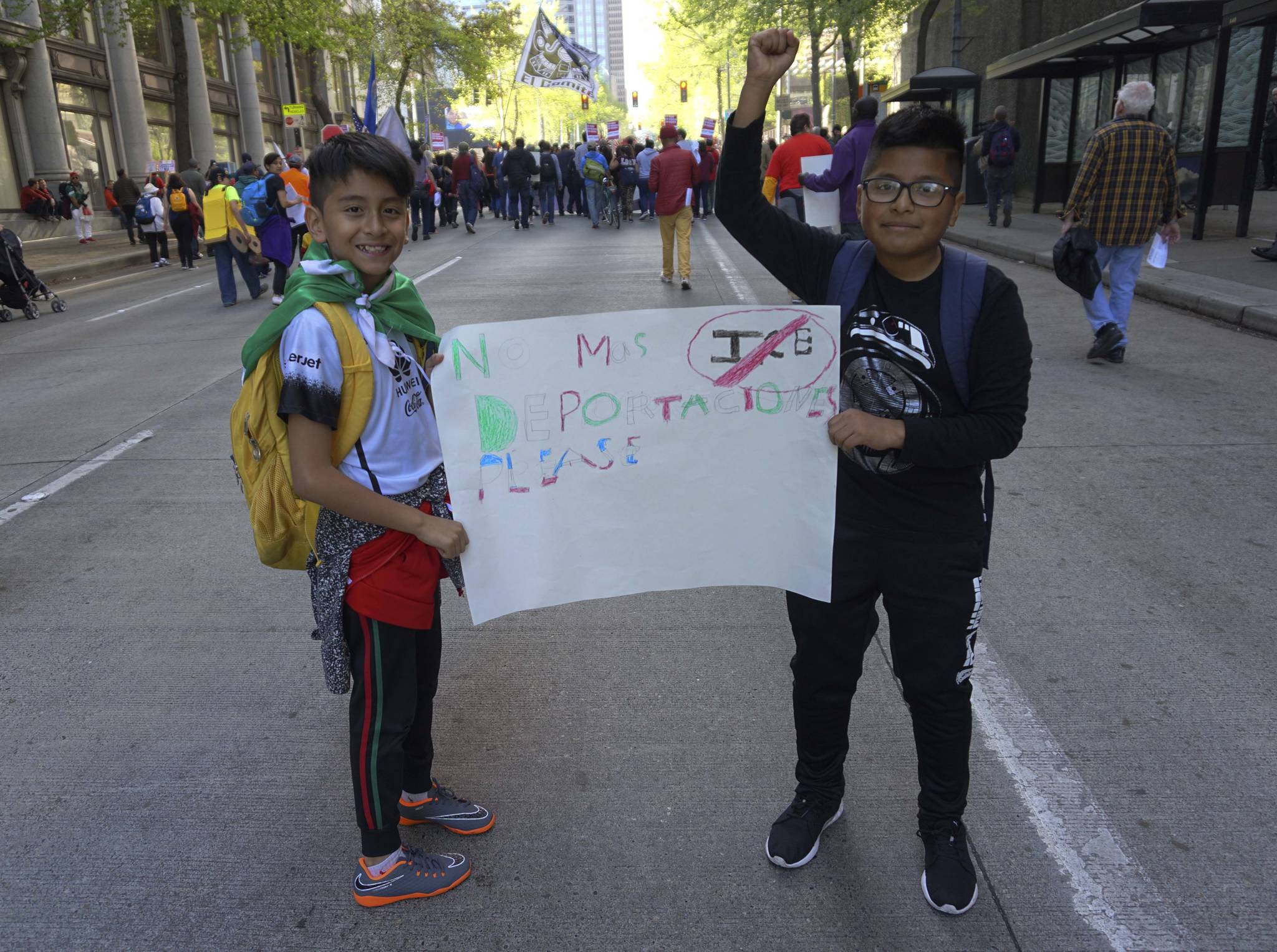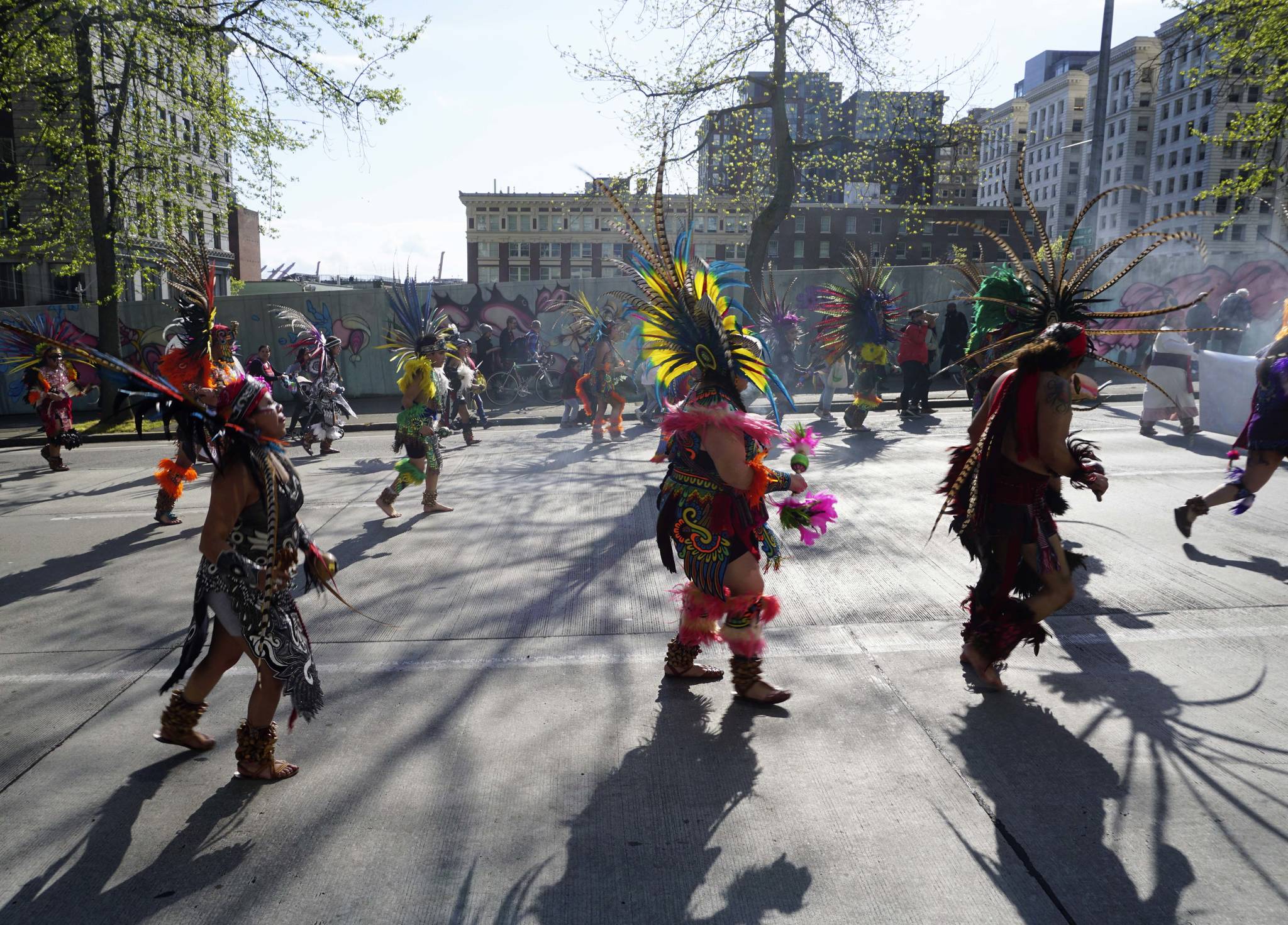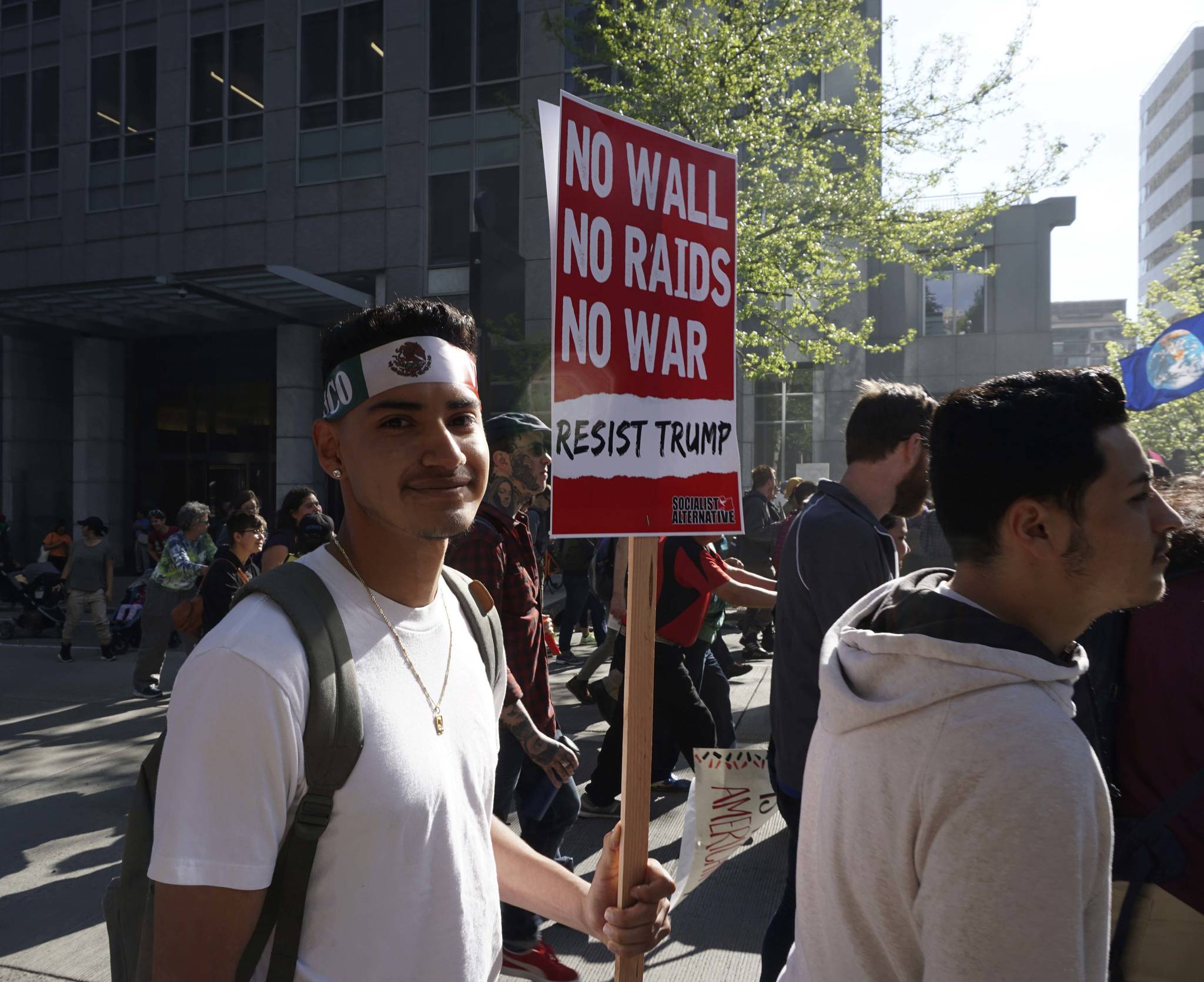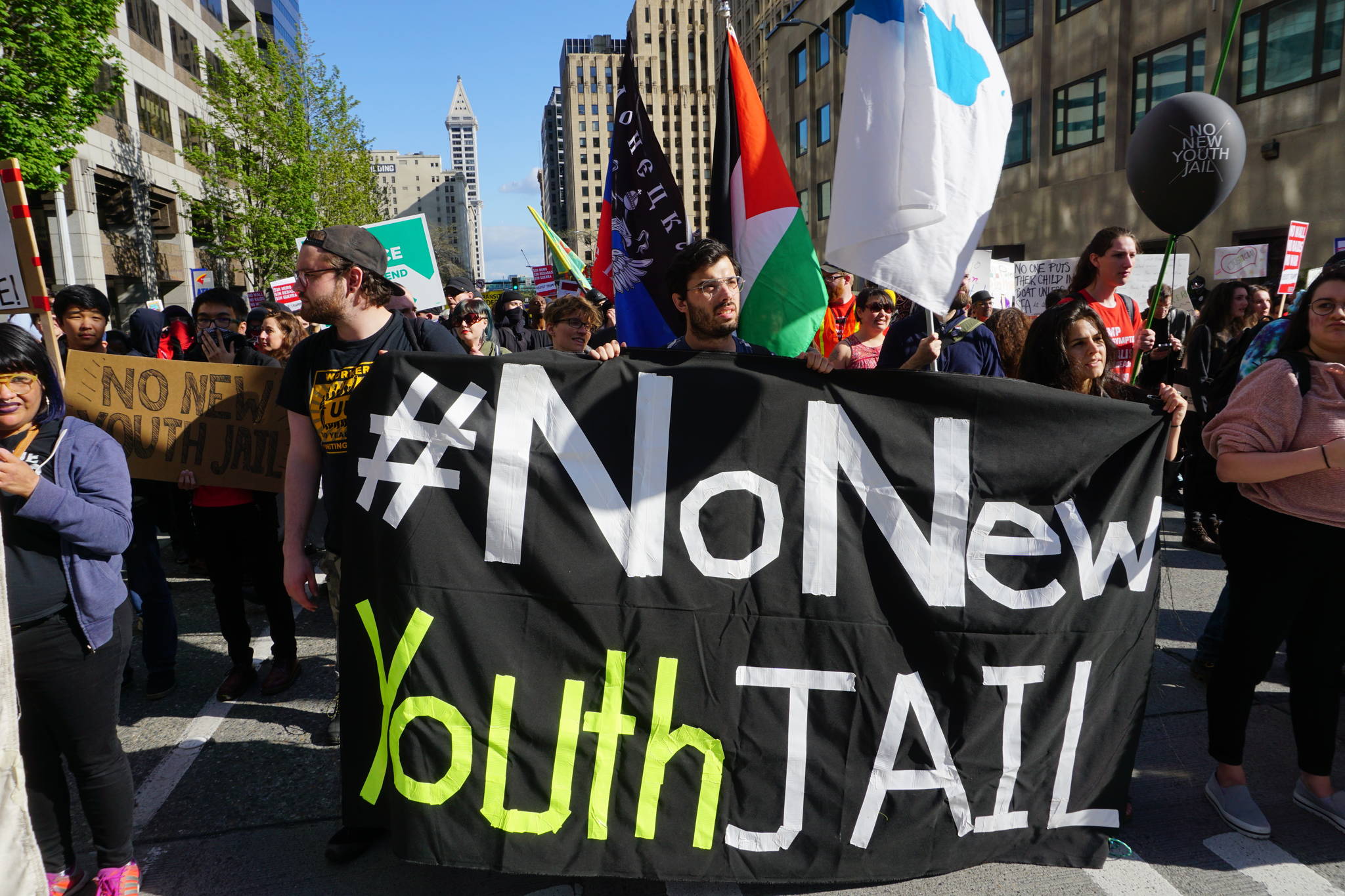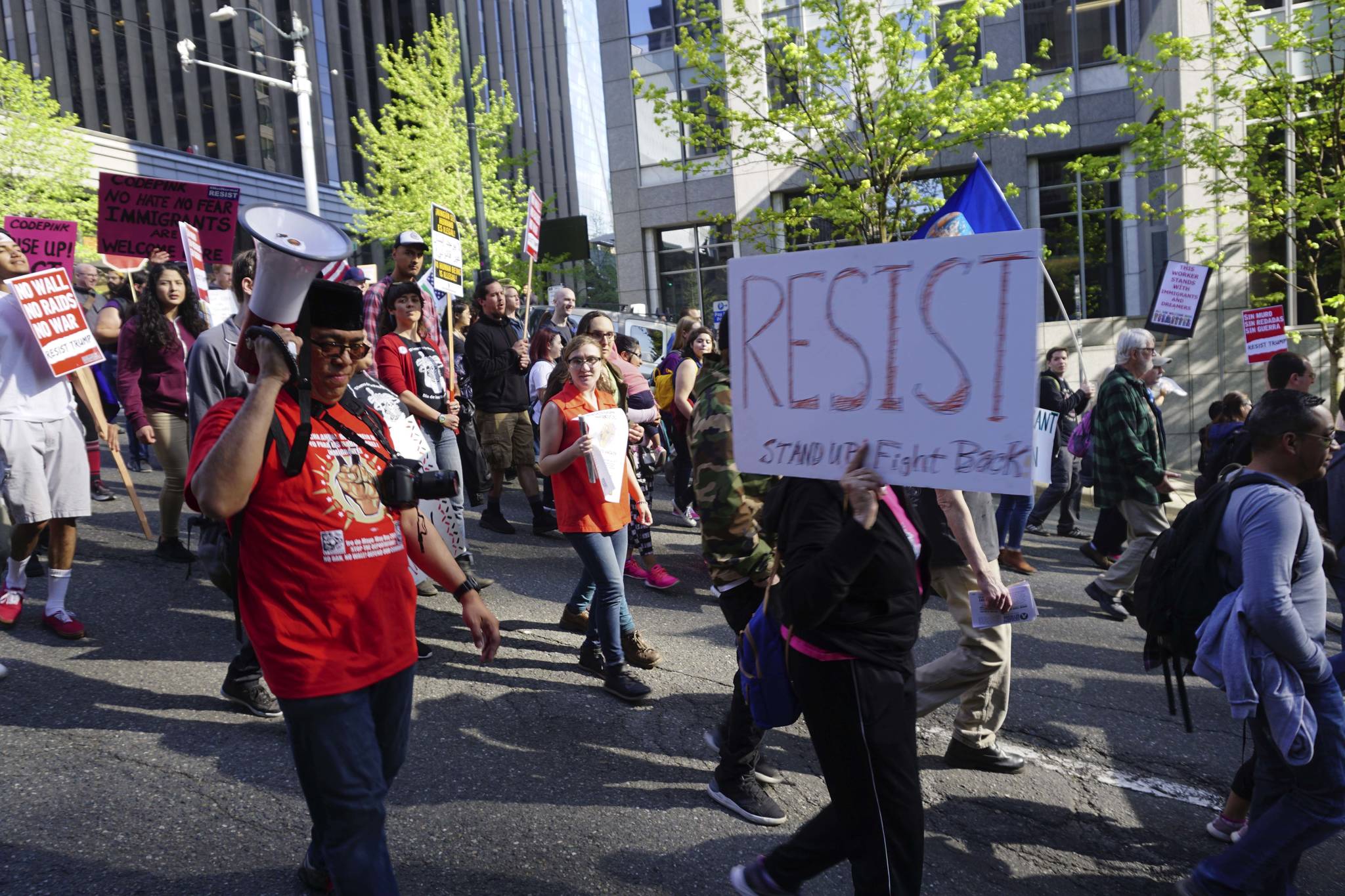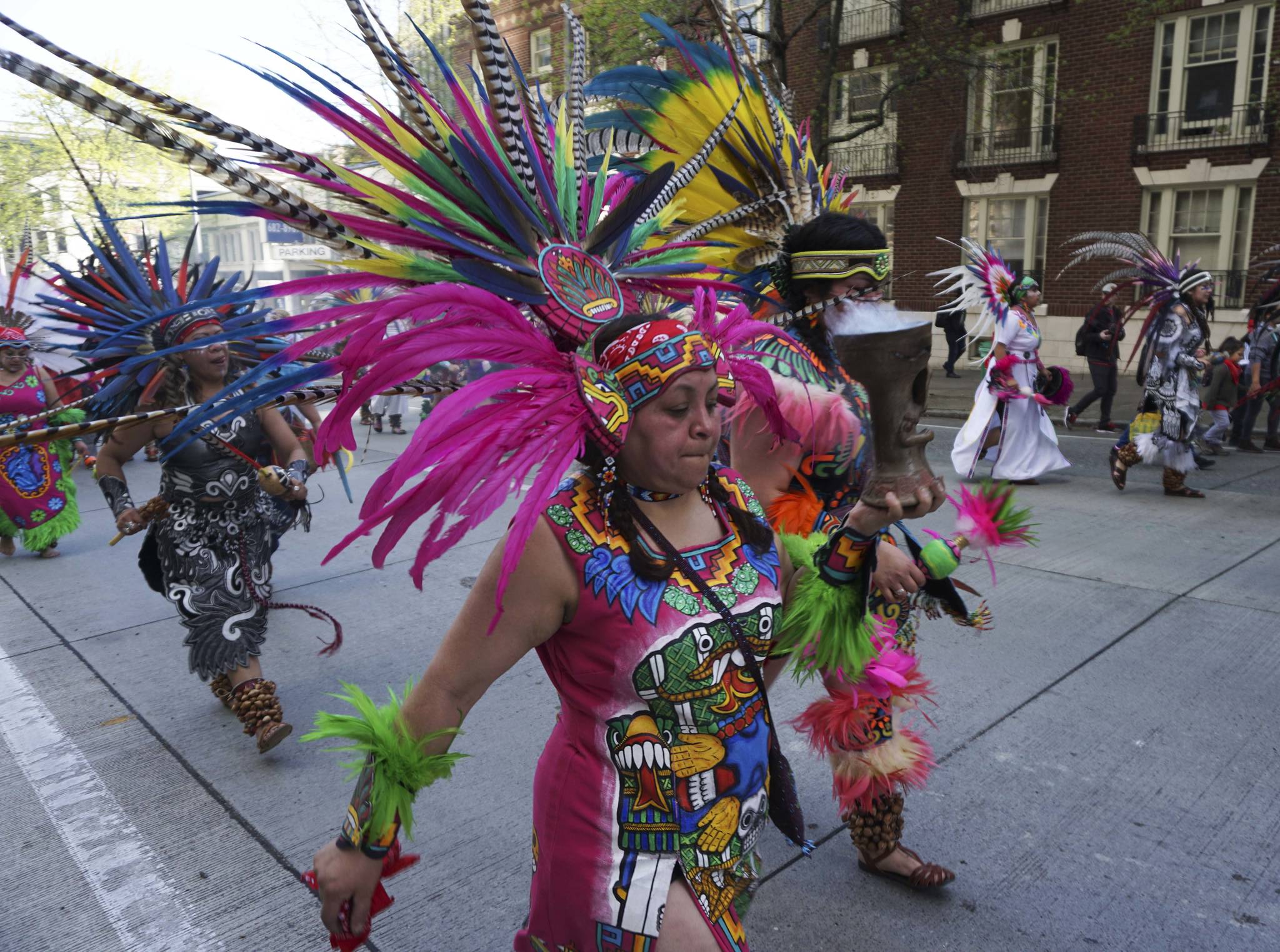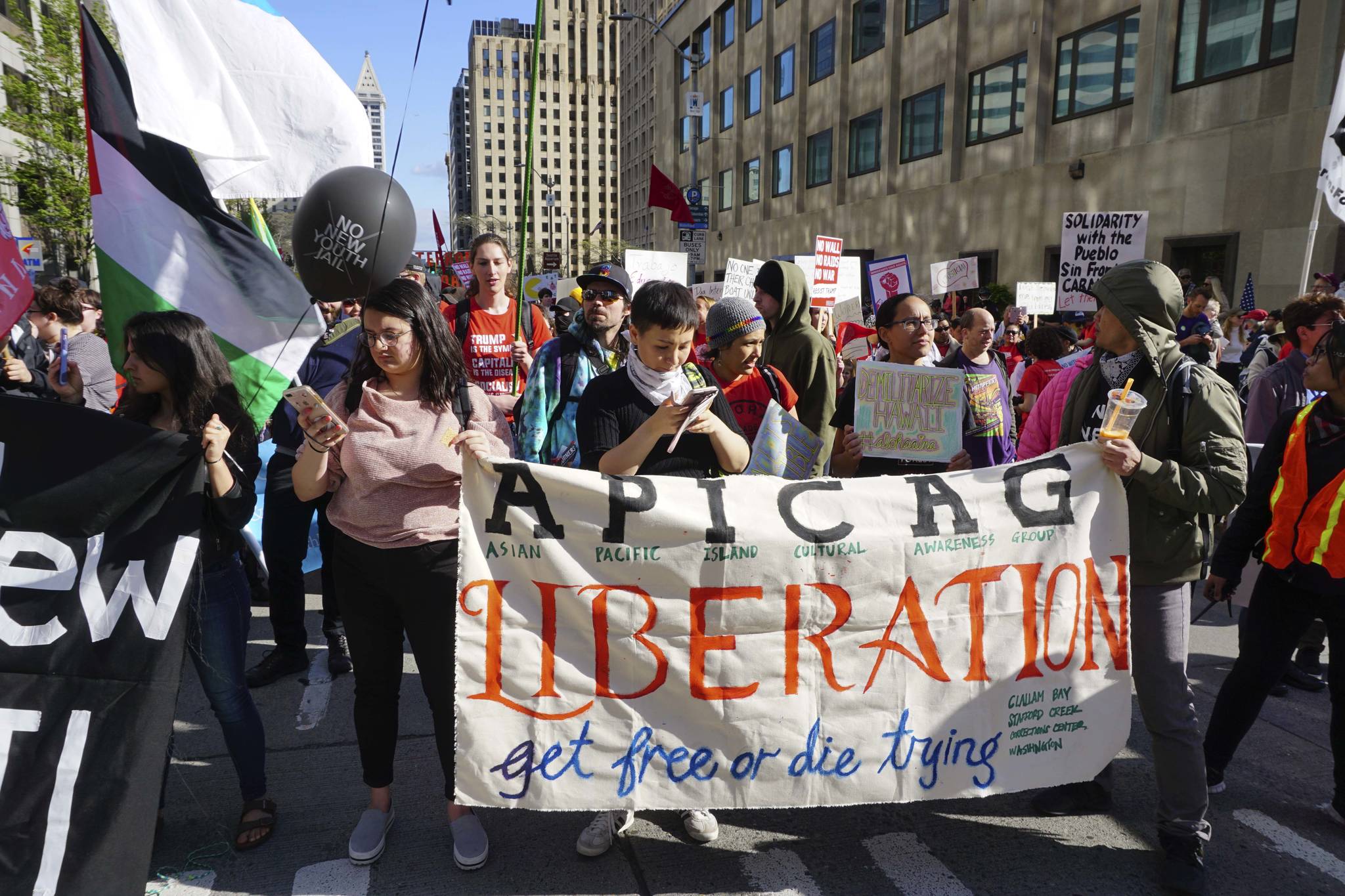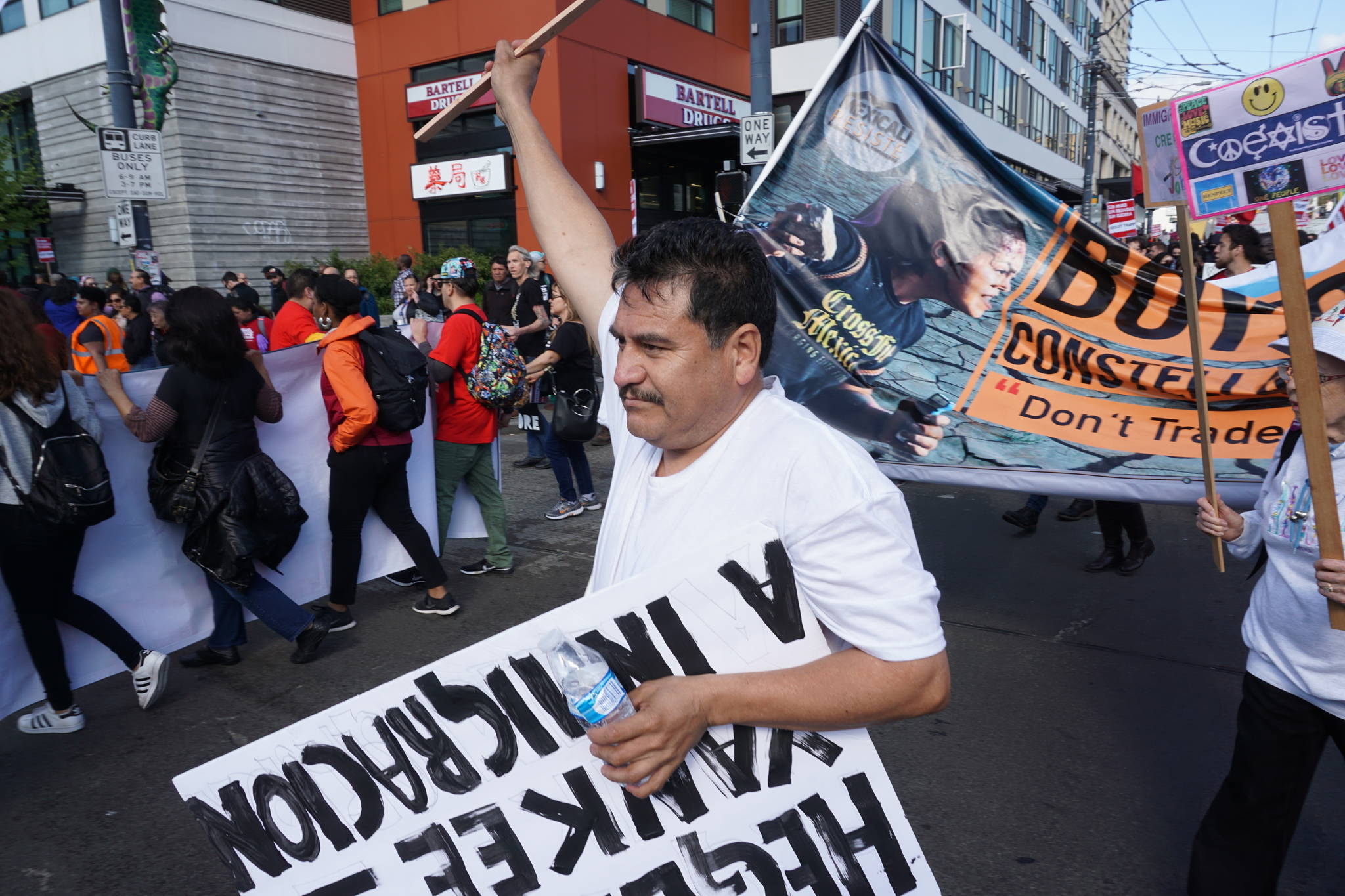On Tuesday, hundreds of people marched through the streets of Downtown Seattle for the 19th annual May Day March for Immigrant and Workers Rights. As they trailed behind dancers wearing headdresses, demonstrators clutched signs that called for livable wages, the end of deportations, and fairer immigration policies.
May 1 Action Committee for El Comité led the march that started in Judkins Park, and concluded about two hours later outside of the federal courthouse. Although the police were originally concerned that clashes would break out, there was nary a dispute between anti-capitalist activists and the conservative fraternal group Proud Boys or the pro-Trump Patriot Prayer movement.
Malaya Movement organizer Donna Denina, 41, pulled her two children behind her in a caravan as the sound of helicopters buzzed overhead. She joined the march’s Womxn of Color and Families Contingent “to highlight that women workers, particularly migrant women, are often the most impacted when it comes to worker’s issues in terms of pay, labor exploitation, wage exploitation,” Denina said, adding that many immigrant women who are experiencing financial hardship leave their families to work abroad. “Our message is really in solidarity with those … migrant worker women that have to undergo those particular issues.”
Others attended the event to voice their opposition to some of President Trump’s immigration policies. The nationwide ban of refugees and immigrants from predominately Muslim countries hit close to home for SEIU Healthcare organizer Baboucarr Njai, a 46-year-old Muslim originally from Gambia. In fact, one of his friends had been deported back to Gambia just last month. Njai ultimately expressed a hope for “equal rights and justice for all.”
The theme of intersectionality dominated Tuesday’s march, as some demonstrators voiced their support for workers rights as well as their opposition to the construction of a new youth detention center. J.M. Nimocks, a 24-year-old Masters of Social Work student at University of Washington, marched with local environmental justice organization Got Green. Nimocks pulled a caravan filled with snacks for other demonstrators’ children as she marched through the International District. Nimocks joined the demonstration to call attention to the displacement of minority communities in South Seattle, and the alleged unfair labor practices at grocer New Seasons Market. “We’re definitely in support of making sure that workers rights are being respected, and that they’re fairly compensated,” Nimocks said, her voice eventually drowned out by the cacophony of drumming and chanting.
Speeches at this year’s March for Immigrant and Workers Rights expanded beyond labor issues, remarked Indonesian Lutheran Fellowship pastor Diakonda Gurning. As one of the march’s lead organizers since 2006, Gurning cited the Seattle Women’s March as a catalyst for greater intersectionality at Tuesday’s event in comparison to previous years’ gatherings. “I’m here because I have seen that fear has started seeping into our communities. So I think that I’m coming out to remind people that this is the exercise of being in a democracy,” Gurning said as he walked down Second Avenue. A moment later he hopped onto a makeshift stage positioned in front of the federal courthouse to share his message with the crowd.
mhellmann@seattleweekly.com
